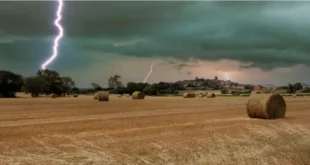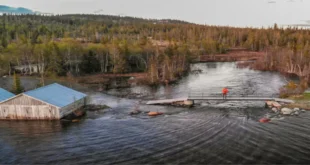Your Complete Guide to Mornington Tip and Sustainable Waste Disposal
The Mornington Tip, formally known as the Mornington Resource Recovery Centre, is more than just a landfill; it is a pivotal facility for waste management and recycling on the Mornington Peninsula. Residents, businesses, and the council work together to uphold a sustainable approach toward waste, reducing landfill waste and maximizing recycling efforts. This article provides an in-depth guide to the Mornington Tip, how it operates, its environmental significance, and how you can make the most out of your visit.
1. Overview of Mornington Tip and Resource Recovery
The Mornington Resource Recovery Centre serves as the primary waste management site for the Mornington Peninsula region. This facility enables residents and businesses to dispose of waste responsibly while providing a variety of recycling options. It plays a critical role in the local council’s sustainability objectives, helping to divert waste from landfills and promote recycling. Open year-round, it offers a reliable and eco-friendly solution for managing waste, encouraging the local community to engage in sustainable practices.
2. What Can You Dispose of at Mornington Tip?
One of the unique aspects of the Mornington Tip is its ability to accept a wide array of waste types. Common disposables include:
- Household Waste: Items like broken furniture, kitchen waste, and miscellaneous household items that can’t be recycled.
- Building and Demolition Waste: Includes bricks, tiles, timber, and scrap metal.
- Green Waste: Leaves, branches, grass clippings, and other organic materials.
- Recyclables: Such as plastic, glass, metal, and paper items.
- E-Waste: Old electronics, including televisions, computers, and other electronic devices.
Mornington Tip encourages residents to sort waste prior to disposal, ensuring that recyclables are separated to minimize landfill usage.
3. The Importance of Responsible Waste Disposal
Proper waste disposal at facilities like the Mornington Tip not only conserves landfill space but also minimizes the environmental impact. Organic materials that end up in landfills emit methane, a potent greenhouse gas that contributes significantly to global warming. Furthermore, hazardous items, if improperly discarded, can leach chemicals into the soil and groundwater, leading to pollution.
4. Recycling Facilities at Mornington Tip
Mornington Tip prioritizes recycling, providing bins for various types of recyclable materials. Here’s a closer look at their recycling options:
- Plastic Recycling: Includes commonly recycled plastics such as PET and HDPE.
- Glass Recycling: Glass bottles and jars can be deposited here for proper recycling.
- Metal Recycling: Items like aluminum cans, scrap metal, and even white goods like fridges.
- Paper and Cardboard: Magazines, newspapers, and cardboard boxes are all recyclable.
The facility ensures these items are recycled and repurposed, reducing the community’s carbon footprint.
5. E-Waste Disposal: Importance and Process
E-waste is a significant concern due to the rapid pace of technological advancement, which renders many electronic items obsolete. The Mornington Tip offers dedicated e-waste disposal services:
- Why Recycle E-Waste? Electronics contain toxic elements such as mercury, lead, and cadmium. Recycling prevents these substances from contaminating soil and water.
- The Recycling Process: Electronics are taken apart, with useful components salvaged and repurposed.
E-waste recycling reduces the demand for mining raw materials, helping conserve natural resources.
6. Green Waste Solutions
Green waste includes all garden waste and other organic materials. The Mornington Tip processes green waste through composting and mulching. This approach transforms waste into valuable compost, which is then used in local landscaping projects. By recycling green waste, the facility promotes a circular economy, where waste is returned to the environment as a productive resource.
7. Hazards and Safety: What Not to Bring
Certain materials are restricted at the Mornington Tip due to safety and environmental regulations. Prohibited items include:
- Hazardous Waste: Chemicals, paints, asbestos, and flammable items are not accepted.
- Medical Waste: Syringes, pharmaceuticals, and bio-waste should be disposed of through specialized services.
- Gas Cylinders and Explosives: These items are dangerous and require proper handling through designated facilities.
Ensuring these items are kept out of the facility protects the workers, the public, and the environment.
8. Costs and Pricing Structure
To help cover operational costs, the Mornington Tip charges fees based on waste type and load size. The pricing structure is fair and is designed to encourage recycling:
- Household Waste: Charged by weight, with minimum fees applying.
- Green Waste: Generally cheaper, given its compostable nature.
- E-Waste Disposal: Often has a nominal fee, as the recycling process can be intensive.
Discounts may apply for residents, with certain items recycled for free, such as household recyclables and batteries.
9. Special Services and Community Programs
The Mornington Tip is also involved in several community-oriented programs:
- Educational Workshops: On recycling and sustainability.
- Household Hazardous Waste Collection Days: Organized to collect items that require special handling.
- Local Partnerships: Collaborations with schools and businesses to promote recycling and reduce waste.
These programs foster community involvement, highlighting the importance of waste management beyond simply “throwing things away.”
10. Sustainable Alternatives to Reduce Waste
The best way to minimize trips to the Mornington Tip is to adopt sustainable habits at home. Consider the following:
- Reduce Plastic Use: Replace single-use plastics with reusable containers.
- Compost at Home: A great way to manage organic waste and create nutrient-rich soil.
- Repurpose and Upcycle: Before throwing something out, see if it has a second life.
- Buy in Bulk: Reduces packaging waste and is often more economical.
These habits reduce waste generation, lessen environmental impact, and encourage a more sustainable lifestyle.
11. Tips for a Hassle-Free Visit
Before visiting the Mornington Tip, a little preparation goes a long way:
- Separate Waste in Advance: Sorting saves time and ensures recyclables are correctly disposed of.
- Check the Operating Hours: Mornington Tip has specific hours, so plan your visit accordingly.
- Follow Staff Instructions: The staff is there to help guide you in disposing of waste properly and safely.
Preparing in advance not only saves you time but also helps the facility run more efficiently.
12. Mornington Tip’s Role in Achieving Sustainability Goals
Mornington Tip is integral to the region’s environmental efforts, aligning with broader sustainability goals. By reducing landfill dependency, it helps mitigate the negative effects of waste on the environment. Its recycling initiatives also support Australia’s ambitious targets for reducing carbon emissions and conserving resources.
The Mornington Tip also plays a crucial role in educating the community about the importance of sustainable waste management, emphasizing that waste reduction and recycling go hand-in-hand with environmental stewardship.
13. How the Community Can Contribute to Waste Reduction
Communities are vital to achieving meaningful progress in waste reduction. The residents of Mornington Peninsula, by coming together and making small, consistent changes, can collectively drive significant environmental impact. Here are actionable ways the community can support waste reduction and sustainability goals:
1. Spreading Awareness
Education is the foundation of sustainable change. Residents can foster awareness by sharing valuable insights and tips about recycling and waste management with friends, neighbors, and family. Hosting informational sessions or even small gatherings to discuss proper waste separation, recycling techniques, and the environmental consequences of waste can inspire others. Leveraging social media platforms to share local recycling guidelines, success stories, and eco-friendly practices can also amplify the reach, educating the broader community on effective waste reduction strategies.
2. Participating in Community Programs and Events
Community programs like clean-up events, workshops, and recycling drives are effective avenues for fostering engagement and collective action. The Mornington Tip frequently collaborates with local organizations to hold clean-up days, e-waste collection events, and educational workshops on composting and recycling. By participating in these events, residents can directly contribute to a cleaner environment while learning practical ways to reduce household waste. Schools and local clubs can also get involved by organizing “green days” or “recycling weeks” to instill environmentally responsible habits in the younger generation.
3. Advocating for and Supporting Local Policies
For lasting change, community voices are essential in influencing local government policies related to waste management. By supporting council initiatives, such as increased recycling facilities or stricter regulations on single-use plastics, residents can help shape policies that promote sustainability. Signing petitions, attending council meetings, or even writing to local representatives can make a difference. Local advocacy encourages decision-makers to prioritize waste reduction initiatives, ensuring that Mornington Peninsula continues to invest in sustainable infrastructure and practices.
4. Embracing Sustainable Habits and Reducing Personal Waste
On an individual level, adopting sustainable practices is one of the most impactful ways to contribute to waste reduction. Simple habits, like carrying reusable bags, reducing single-use plastic consumption, and choosing products with minimal packaging, can greatly reduce personal waste. Residents can also consider composting at home to manage organic waste and create nutrient-rich soil for gardening. Embracing the “reduce, reuse, recycle” mindset can turn everyday actions into meaningful environmental contributions, minimizing the need for landfill disposal.
5. Supporting and Utilizing Local Recycling and Reuse Facilities
Mornington Peninsula is equipped with several recycling facilities, including the Mornington Tip, which offer resources and guidance for proper waste disposal. Residents can maximize these resources by regularly dropping off recyclable items, especially those that may not be collected through standard curbside pickup, like e-waste and larger items. Supporting local secondhand shops, thrift stores, and donation centers is also an excellent way to keep usable items out of the landfill. By donating or purchasing secondhand, community members contribute to a circular economy, giving items a new life rather than discarding them.
6. Inspiring Future Generations
Waste reduction is a long-term commitment, and inspiring younger generations to adopt sustainable practices ensures a positive environmental impact in the years to come. Families can involve children in recycling tasks at home, teaching them the difference between recyclable and non-recyclable materials. Schools in the area can integrate waste management topics into the curriculum or organize field trips to facilities like Mornington Tip, helping students understand the importance of sustainability. Young people who grow up with a respect for the environment are more likely to carry these values into adulthood, creating a ripple effect of responsible waste management.
7. Celebrating Local Success Stories and Milestones
Highlighting and celebrating local achievements in waste reduction not only fosters community pride but also motivates more residents to participate. Whether it’s a neighborhood achieving a waste reduction milestone or a local business reducing its carbon footprint, sharing these success stories can serve as a powerful motivator for others. Residents can encourage local media outlets to spotlight these stories, or even establish community recognition awards for individuals or groups that contribute to environmental efforts. Celebrating progress creates a sense of shared responsibility and accomplishment, reinforcing the idea that every effort counts.
8. Collaborating with Local Businesses for Greener Initiatives
Businesses play a critical role in community waste reduction. Residents can encourage and support local shops, restaurants, and service providers that adopt eco-friendly practices, such as reducing plastic packaging, offering reusable containers, or implementing recycling programs. This mutual encouragement not only supports the local economy but also fosters a community culture where sustainability becomes the norm. Collaborating with businesses to host zero-waste events or encourage “bring your own container” days are practical steps that create a positive environmental impact across the community.
Making a Lasting Difference Together
Each of these efforts, no matter how small, contributes to a larger, more sustainable impact for the Mornington Peninsula. By working together and reinforcing positive behaviors, the community can drive a meaningful shift towards reducing waste, preserving resources, and protecting the environment for future generations.
Conclusion
The Mornington Tip is more than a waste disposal site; it is a vital component of the Mornington Peninsula’s environmental and community efforts. By embracing recycling and sustainable practices, it serves as a model for responsible waste management, encouraging residents to make eco-friendly choices in their daily lives.
As we look towards a future where waste continues to be a pressing global issue, Mornington Tip reminds us that solutions are within reach. With community support, innovative recycling programs, and responsible waste management practices, Mornington Peninsula is setting a standard for environmental responsibility that other regions can aspire to.
Frequently Asked Questions (FAQs)
What types of waste are accepted at the Mornington Resource Recovery Centre?
The Mornington Resource Recovery Centre accepts a wide range of waste, including household waste, recyclables like glass and plastic, electronic items, green waste, and construction debris. However, hazardous waste items like chemicals, asbestos, and gas cylinders are not accepted due to safety regulations. Always check their website or contact the center directly for the most updated list of acceptable materials.
Is there a fee for disposing of waste at Mornington Tip?
Yes, there is a fee structure in place for waste disposal at the Mornington Tip, with prices varying based on waste type and load size. Some items, like certain recyclables, may be free to dispose of, while others have specific charges. The pricing is designed to encourage recycling and support the operational costs of the facility.
What recycling options are available at Mornington Tip?
The facility offers extensive recycling options, allowing residents to recycle items such as plastic containers, paper, cardboard, glass, scrap metals, and electronics. Green waste, such as garden clippings and branches, can also be recycled for composting purposes, contributing to local landscaping projects and promoting sustainable waste practices.
Can I recycle electronic waste (e-waste) at Mornington Tip?
Yes, Mornington Tip provides dedicated e-waste recycling services to handle items like old computers, televisions, and mobile devices. E-waste recycling is essential, as these items contain hazardous materials that could harm the environment if not properly managed. E-waste dropped off here is safely dismantled, with valuable components salvaged and reused.
Are there community programs or events related to waste reduction at Mornington Tip?
The Mornington Tip actively engages with the community through various programs, such as household hazardous waste collection days, educational workshops on recycling, and local clean-up events. These initiatives aim to educate and encourage the community in sustainable waste management practices, helping to minimize landfill waste and protect the environment.
How can I prepare for a smooth visit to the Mornington Tip?
To ensure a hassle-free visit, it’s best to separate and sort your waste beforehand, follow the facility’s hours of operation, and adhere to staff instructions for safe disposal. Checking which items are accepted and understanding the fees can also help make your trip smoother and quicker, helping the facility run efficiently for all users.
READ ALSO: CHFL Fixture 2024: A Comprehensive Guide to the Season’s Exciting Lineup
 Touch Blog
Touch Blog



